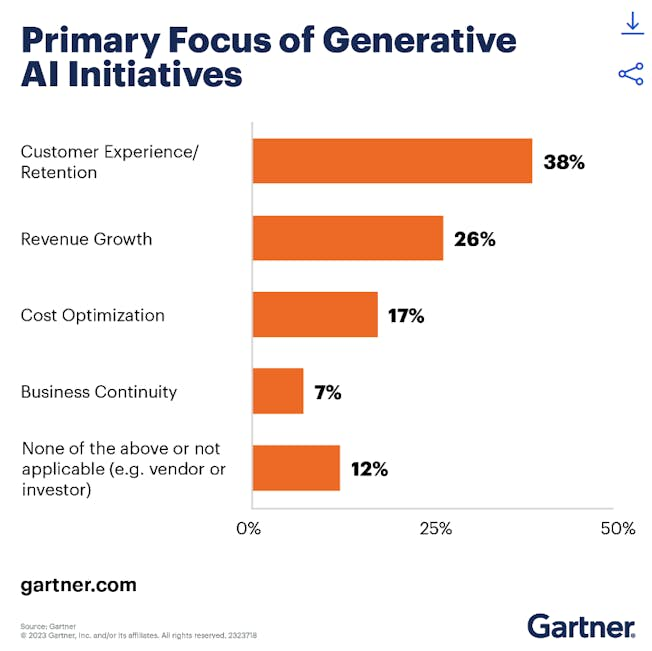From Academia to Career Path: Six Essential Skills Graduates Need to Succeed in the Workplace
The job market today presents significant challenges, especially for those just beginning their professional journeys. The combination of recent widespread job cuts, economic fluctuations, and a deficit in essential skills poses difficulties for higher education institutions aiming to equip their students for employability.
Such circumstances prompt questions about the strategies graduates must employ to navigate the job market effectively and the specific qualities future employers will prioritize. Notably, industry forecasts anticipate that technological advancements will outpace the development and scalability of corporate training programs, potentially affecting 44% of the workforce’s core competencies.
However, the solution lies in equipping students with the competencies and knowledge prized by employers. This approach enables students to distinguish themselves, showcasing direct experience in domains critical to an organization’s success.
In this blog, we delve into trends affecting student employability and pinpoint essential attributes desired by future employers. Our exploration will cover both the skills in demand and how educators can assist students in refining these abilities to produce graduates who are highly sought after.
- Digital and Data Mastery
- Collaborative Skills
- Understanding Artificial Intelligence
- Adaptability and a Growth Perspective
- Emotional Insight
- Leadership Potential
1) Digital & Data Mastery
In today’s business landscape, data is a pivotal element in decision-making processes, analyzing consumer behaviors, and benchmarking performance, making data comprehension essential. This necessity spans across various roles, necessitating that everyone from IT professionals to marketing specialists possesses the ability to interpret data to boost organizational outcomes.
Attaining data savvy is inseparable from digital literacy. Although many students are digital natives, understanding digital platforms’ operational and strategic business uses is another matter, especially with the incorporation of complex technologies like artificial intelligence (more on this to follow).
As educators, here’s how you can contribute:
- Introducing analytics tools – Start with familiarizing students with analytics software such as Google Analytics 4 (GA4), Tableau, or Microsoft Excel. This offers a practical grounding in data analysis.
- Employing data visualization – Grant access to and practice with data visualization platforms like Tableau, Zoho Analytics, or Google Charts. Encourage the crafting of visual data narratives through charts and infographics.
- Incorporating hands-on simulations – Use simulations to provide a comprehensive analysis experience, allowing for experimentation and learning from errors to refine methodologies.
- Organizing industry interactions – Host guest lectures or workshops led by field experts to demonstrate data’s diverse applications and share real-world insights.
- Forming partnerships with the business sector – Collaborate with industry entities to offer students practical exposure to cutting-edge technologies, revealing future career paths.
“By 2027, analytical reasoning, creativity, and AI and big data expertise will dominate the list of most sought-after skills.”
Report on the Future of Jobs 2023 by The World Economic Forum
2) Collaborative Skills
As businesses evolve, there is a growing appreciation for soft skills, including the capacity for effective teamwork. Employers are on the lookout for individuals who can seamlessly integrate into teams, respect diverse perspectives, and contribute to collective goals.
The advantages of teamwork in a corporate setting are manifold, fostering efficient problem-solving, driving innovation, and supporting both personal and career growth, among others.
To foster teamwork capabilities in students, educators can:
- Initiate team projects – Design group assignments with clear objectives, such as developing a marketing strategy for a brand. Consider varying team compositions to encourage diverse collaborations.
- Conduct team-building activities – Implement exercises aimed at enhancing trust and communication within a group context.
- Facilitate reflective opportunities – Integrate reflection sessions into the curriculum to allow students to evaluate and discuss learning outcomes, challenges faced, and strategies for improvement.
- Promote inclusive participation – Ensure that all group members, especially those less inclined to speak up, have opportunities to contribute, thereby fostering confidence and inclusivity.
Graduates who exemplify professionalism, reliability, and a strong work ethic are prized by employers, significantly enhancing their prospects during the recruitment process.
“The emphasis on teamwork and collaborative work environments has been steadily increasing,” notes Dr. Scott Tannenbaum, a researcher and president of the Group for Organizational Effectiveness. “This trend encompasses various forms of teams, including stable work groups and virtual teams.”
3) Understanding Artificial Intelligence
With the advent of AI, notably generative AI, the landscape for automation and customer service, exemplified by chatbots, has been transformed. Generative AI, with tools like ChatGPT leading the charge, offers businesses new avenues to enhance efficiency and productivity.

This necessitates that students gain a solid understanding and practical experience with AI to distinguish themselves in the job market.
Ways educators can assist in this endeavor include:
- Exploring AI’s role in business and society – Dive into discussions about AI’s capabilities and potential societal and ethical ramifications. Tools like ChatGPT can serve as conversation starters.
- Utilizing AI applications – Introduce a variety of AI tools tailored to different purposes, such as Google Trends for market insights and Rival IQ for competitive analysis.
- Practicing with AI prompts – Engage students in crafting effective prompts for AI tools like ChatGPT, honing their ability to elicit precise responses.
- Studying AI applications in industry – Examine cases of successful AI integration in businesses, like Starbucks’ voice search and Netflix’s recommendation engine.
“63% of employers are more inclined to hire candidates with AI qualification, leading 100% of the universities we surveyed to consider introducing AI-centric courses or programs.”
DMI Survey Insights
4) Adaptability and a Growth Perspective
The rapid evolution of professional skills and work modalities demands employees who are versatile and open to learning. For students, the ability to quickly adapt to new trends, technology shifts, and unpredictable market dynamics is invaluable. It also cultivates curiosity and innovative thinking, empowering them to approach challenges from unique angles.
Moreover, as industries undergo fast-paced transformations and skill requirements evolve, candidates who proactively engage in continuous learning and skill development are especially valued. Employers favor individuals who not only welcome change but actively pursue opportunities for personal and professional growth, positioning themselves as adaptable and forward-thinking contributors to the workforce.
Strategies for educators to nurture these skills and mindsets include:
- Promoting independent learning – Provide students with resources for self-directed learning, like online courses or educational platforms.
- Encouraging exploration of diverse subjects – Broaden students’ educational horizons by encouraging interest in topics beyond the core curriculum, utilizing a wide array of learning materials such as industry blogs, webinars, and digital toolkits.
- Implementing multidisciplinary projects – Design assignments that require applying knowledge from multiple disciplines, fostering adaptability and creative problem-solving.
- Fostering introspection – Encourage students to reflect on their learning experiences and mindset, helping them identify and address any fixed mindset tendencies.
5) Emotional Insight
Emotional Intelligence (EI) involves the capacity to recognize, assess, and manage one’s emotions and those of others. In the corporate realm, EI is increasingly important, with a growing demand for team members adept at interpreting nonverbal signals and adjusting their behavior for optimal decision-making.
EI is particularly crucial for individuals in leadership positions or those aspiring to such roles.
The five pillars of emotional intelligence in the workplace include self-awareness, motivation, self-regulation, social competency, and empathy. These components collectively contribute to developing a well-balanced, adaptable employee capable of navigating varied situations and interactions.
“Managing workplace dynamics, such as conflict resolution, motivation, negotiation, and general interpersonal interactions, significantly relies on emotional intelligence,” states Mark Craemer, a consultant, leadership coach, and author. “It’s your EQ that positions you for efficacy in your role, career advancement, and overall success.”
To enhance EI among students, educators can:
- Facilitate peer feedback and reflective exercises – Encouraging mutual feedback helps students understand the impact of their actions on others and hone their ability to offer and receive constructive critiques.
- Guide development of effective communication skills – Through workshops or discussions, teach active listening and the significance of nonverbal cues.
- Promote empathy-building activities – Engage students in exercises that require consideration of various perspectives, fostering empathy and improving interpersonal relationships.
- Model examples of emotional intelligence – Conduct simulated interviews asking students to share instances of EI application, such as reactions to errors, handling of feedback, or resolution of team conflicts.
- Advocate mindfulness practices – Meditation and mindfulness can aid in self-regulation and stress management. Recommend apps like Headspace or Calm to support these practices.
6) Leadership Potential
Leadership encompasses a suite of soft skills, including teamwork, adaptability, creativity, and emotional intelligence. Graduates who demonstrate leadership capabilities signal their readiness for roles beyond entry-level positions, facilitating faster career progression and opportunities for project and team management.
Cultivating leadership skills can begin at any stage, through activities ranging from charitable volunteering to mentorship roles.
Educators can support leadership development through:
- Designating leadership roles – Assign leadership responsibilities in group projects or exercises, particularly to students who may not typically assume such positions, allowing them to develop leadership aptitudes.
- Encouraging engagement in extracurricular activities – Participation in volunteering or student government can foster leadership qualities while providing venues for community engagement and personal interests.
- Arranging internships – Collaborating with local businesses or governmental agencies to secure internship opportunities enables students to gain real-world experience and insights.
- Conducting leadership-focused workshops or inviting guest speakers – Hosting sessions dedicated to leadership skills and featuring industry leaders or entrepreneurs can offer students valuable perspectives and practical advice.
Enhancing Your Curriculum with Digital Marketing and AI Education
In the face of a challenging job market, it’s crucial for educational institutions to provide opportunities for students to acquire key skills that enhance their employability. We collaborate with universities and colleges to deliver industry-endorsed qualifications and professional competencies that prepare students for successful careers. Discover how our partnership can benefit your institution today!
OptiPrime – Global leading total performance marketing “mate” to drive businesses growth effectively. Elevate your business with our tailored digital marketing services. We blend innovative strategies and cutting-edge technology to target your audience effectively and drive impactful results. Our data-driven approach optimizes campaigns for maximum ROI.
Spanning across continents, OptiPrime’s footprint extends from the historic streets of Quebec, Canada to the dynamic heartbeat of Melbourne, Australia; from the innovative spirit of Aarhus, Denmark to the pulsating energy of Ho Chi Minh City, Vietnam. Whether boosting brand awareness or increasing sales, we’re here to guide your digital success. Begin your journey to new heights with us!







